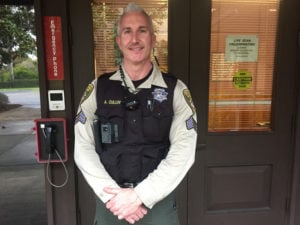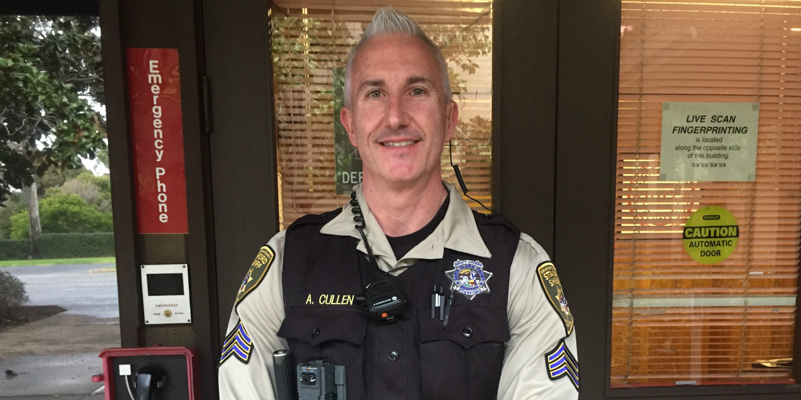Stanford University Department of Public Safety (SUDPS) is set to begin its second round of dorm outreach meetings this school year through the dorm-officer liaison program, in which deputies are assigned as points of contact for a few specific residences each so that every single dorm, house, co-op and self-op on campus is covered.

The program is in its 14th year. As dorm liaisons, deputies educate their assigned residents about smart safety practices as well as relevant laws – for example, on underage possession of alcohol. During dorm meetings, officers also inform residents about building security as well as property and personal safety. They advise students to walk in pairs at night, to keep their doors locked, to keep their windows closed and to ensure their bikes are locked.
“We have a lot of houses to cover, and we try to cover them as best we can,” said Sergeant-on-Patrol Adam Cullen. “We try to reach out to the Resident Assistants (RAs)… We’ll go and meet with them and answer any questions they have and work with them on any concerns they have during the quarter.”
According to Cullen, SUDPS Chief Laura Wilson started the liaison program after remembering one of her first times out on patrol as a deputy. During the patrol, she noticed that residents would close the doors to their dorms whenever she walked by.
“What [Wilson] wanted when she became chief was the deputies out and having contact with the students so the students got to know the deputies a little better when not in those confrontational situations,” Cullen said. “Part of the goal is that contact from our department, just in an informal, kind of non-emergency type of situation.”
While the program offers residents a point of contact, SUDPS advises students who observe a crime in progress to call 911 rather than the dorm liaison.
When officers visit dorm meetings as part of their liaison duties, they are there to help out, Cullen said. Their goal is not to penalize students for drinking or other potential offenses that they might witness while there.
“The deputy is there to make contact with students in the dorm,” Cullen said “Obviously, if there’s something major going on, we’ll have to deal with it, but we’re not going in there to deal with alcohol inside the dorm. But if we go into a dorm room and find six pounds of cocaine, we’re probably going to have to deal with that.”
Regardless, officers’ approach to alcohol-related offenses is not focused on arrest. If people are passed out drunk or need to go to the hospital for having too much to drink, officers will show up to write a report, but they will not make an arrest. Campus police only arrest drunk people when they do not cooperate or commit a second crime, such as littering or public urination.
Deputy Sheriff-on-Patrol Robert Edwards said SUDPS has maintained the dorm-officer liaison program because it believes it to be a useful service for the Stanford community that helps keep students out of trouble. Edwards is assigned to three dorms: two Row houses and Synergy. He simply emails RAs to set up a time to meet.
The deputies generally try to offer a first round of dorm liaison meetings at the beginning of the school year and another as winter quarter progresses.
“Because [students] just got back from break, we were just talking about going out and doing our second round of community outreach,” Edwards said.
Contact Jonathan Seymour at seymourj ‘at’ stanford.edu.
